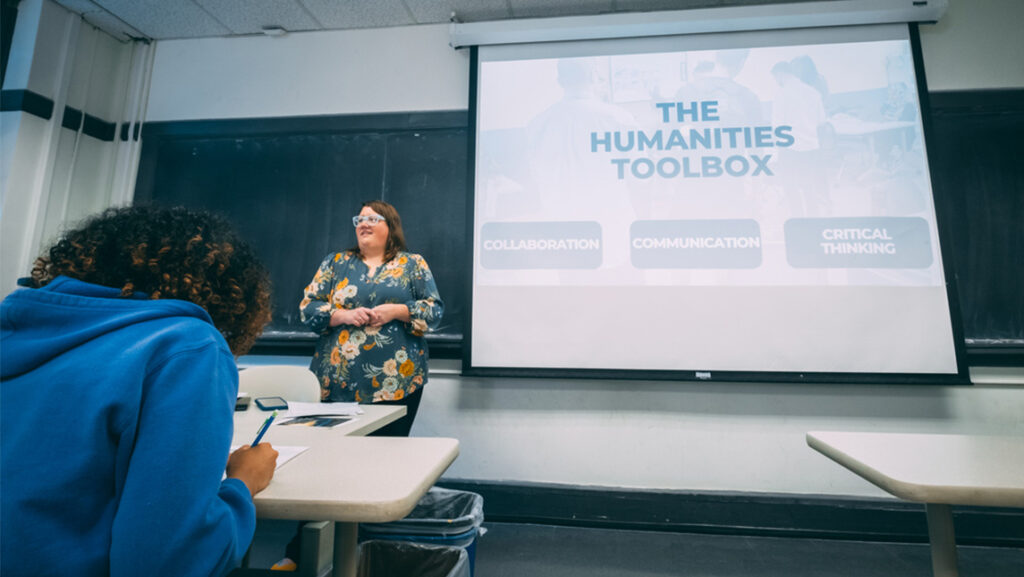From the spring 2017 UNCG Research Magazine
Thirteen years ago, the president of the Society for the Study of Southern Literature, Dr. William L. Andrews, asked Dr. Scott Romine to update “The History of Southern Literature,” published in 1985. Romine, head of the Department of English at UNCG, talked it over with some colleagues, and they decided it was time to scrap the concept altogether.
“We collectively decided that there really was no single, coherent history of Southern literature anymore,” he says. “The existing narrative of Southern literature had become shopworn. Focusing solely on Southern literature and limiting that interrogation to the U.S. South was out of joint with the way the field was evolving. For example, scholars writing about literature were also writing about film, music, and other cultural forms, and they were writing about these things with an eye to a history of plantation colonialism that extended to the Caribbean and South America.”
Those discussions involved Jon Smith, an associate professor of English at Simon Fraser University in British Columbia, and Jennifer Rae Greeson, an associate professor of English at the University of Virginia. Romine would ultimately team up with Greeson to co-edit a very different book, “Keywords for Southern Studies,” a collection of 30 essays. The book was published by the University of Georgia Press in 2016 as part of The New Southern Studies, a series co-edited by Smith.
“It is very much a research-driven book, and a book that tries to reflect research trends in Southern studies over the past 15 to 20 years,” Romine says.
He and Greeson asked colleagues to choose a keyword and write an original piece about the topic. Those keywords range from terms long associated with the South (“plantation,” “segregation,” “fundamentalism”) to ones with a decidedly modern bent (“queer/quare,” “postsouthern”).
![[Photo by Mike Dickens]](https://research.uncg.edu/wp-content/uploads/2017/06/promoIMG_0352-1-scaled.jpg)
“I wrote a paper for that conference that was later published as ‘God and the Moon Pie.’ I was interested in how contemporary Southerners invest food with an almost sacred significance, treating the Moon Pie, for example, as a kind of secular equivalent of a communion wafer.”
The research Romine and Greeson did for “Keywords for Southern Studies” involved extensive reading in Southern studies and related fields. They narrowed down a list of potential contributors, ultimately landing such cutting-edge scholars as Dr. Houston A. Baker Jr. of Vanderbilt University (“incarceration”), Dr. John T. Matthews of Boston University (“fetish”), and Dr. Eric Lott of the City University of New York Graduate Center (“Global South”).
“I don’t know that it’s self-consciously iconoclastic, but we did tend to prioritize people who were asking new questions about the South rather than trying to answer the same old questions,” Romine says.
Special thanks to UNCG alumni Amanda and James Keith for allowing us to use their beautiful Greensboro bed and breakfast, Double Oaks, for our photoshoot.
Learn more at https://english.uncg.edu.



